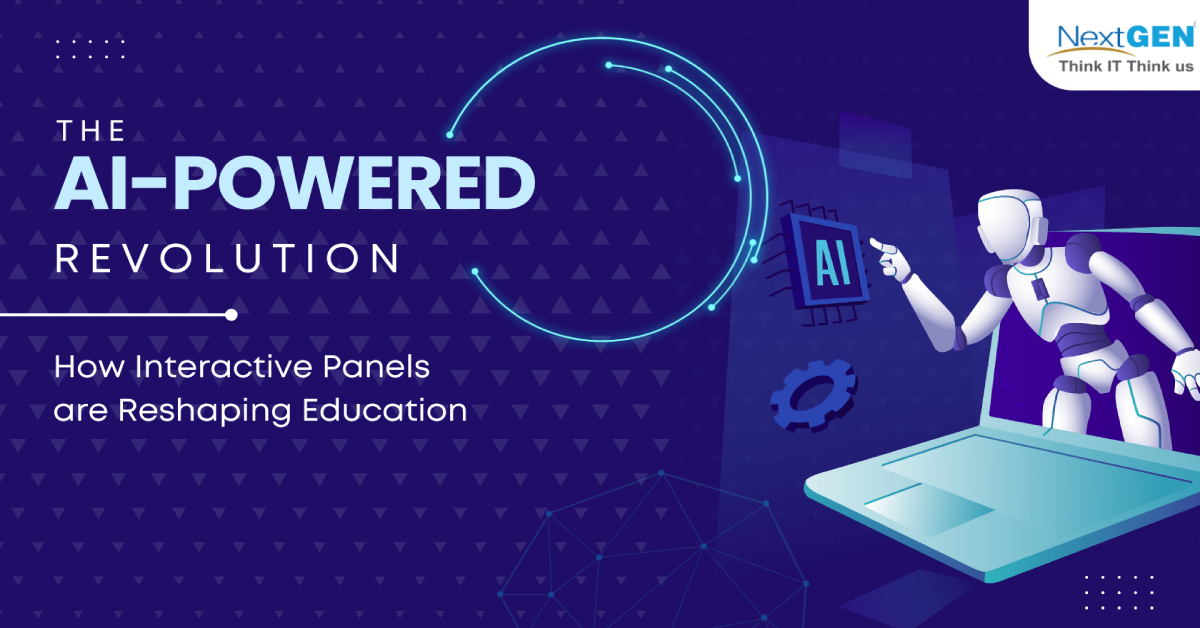Interactive panels, with their touch-sensitive displays, multimedia capabilities, and seamless integration with various software and online resources, have already proven their worth in fostering collaborative and dynamic learning environments. However, the infusion of AI is taking their potential to a whole new level. Let’s delve into the multifaceted ways this technological convergence is revolutionizing education.
1. Personalized Learning Journeys: One of the most significant impacts of AI on interactive panels is the ability to deliver truly personalized learning experiences. AI algorithms can analyze student performance data in real-time, identifying their strengths, weaknesses, and learning styles. This data can then be used to:
- Adaptive Content Delivery: The interactive panel can dynamically adjust the difficulty level of exercises, present content in formats that resonate with individual students (visual, auditory, kinesthetic), and offer targeted support where needed. For instance, if a student struggles with a particular mathematical concept, the panel can automatically provide additional examples, simpler explanations, or alternative approaches until mastery is achieved.
- Personalized Feedback and Remediation: AI-powered tools integrated with interactive panels can provide instant and specific feedback on student work, highlighting areas of improvement and suggesting relevant resources for remediation. This eliminates the delay associated with traditional grading and allows students to address misconceptions immediately. Imagine a language learning app on the panel that not only checks grammar but also provides nuanced feedback on pronunciation and style.
- Tailored Learning Paths: Based on a student’s progress and interests, AI can curate individualized learning paths, suggesting relevant topics, projects, and resources that align with their goals and aspirations. This fosters a sense of ownership over learning and encourages deeper engagement.
2. Enhanced Engagement and Collaboration: Interactive panels were already known for their ability to boost student engagement through interactive exercises, multimedia presentations, and collaborative activities. AI is further amplifying this by:
- Intelligent Content Creation: Assists in creating interactive media like simulations and quizzes.
- Facilitating Collaborative Learning: Analyzes group dynamics and supports teamwork.
- Gamification and Interactive Assessments: Powers game-based learning and adaptive testing.
3. Empowering Educators with Intelligent Tools: The benefits of AI-powered interactive panels extend beyond students to empower educators in numerous ways:
- Automated Administrative Tasks: Handles grading, attendance, and reports.
- Data-Driven Instructional Insights: Informs teaching strategies with real-time performance data.
- Intelligent Lesson Planning: Recommends content and activities aligned with learning objectives.
- Personalized Professional Development: Identifies growth areas and suggests training resources.
4. Creating Inclusive and Accessible Learning Environments: AI helps make learning environments more inclusive and accessible to all students.
- Real-time Language Translation: Supports students from diverse linguistic backgrounds.
- Accessibility Features: Includes text-to-speech, adjustable visuals, and more.
- Support for Special Needs: Provides tailored interventions for students with disabilities.
Challenges and the Path Forward
- Data Privacy and Security: Student data must be handled ethically and securely.
- Equity of Access: All schools must have access to necessary infrastructure and tools.
- Teacher Training and Support: Adequate support and PD are essential for effective integration.
- Curriculum Integration: Curriculum should evolve to support these new technologies.
Conclusion
The convergence of interactive panels and AI is transforming education. With enhanced personalization, engagement, empowerment, and inclusivity, the classroom is evolving into a more effective and dynamic space for learning. Embracing this revolution responsibly will unlock the full potential of education in the 21st century and beyond.











